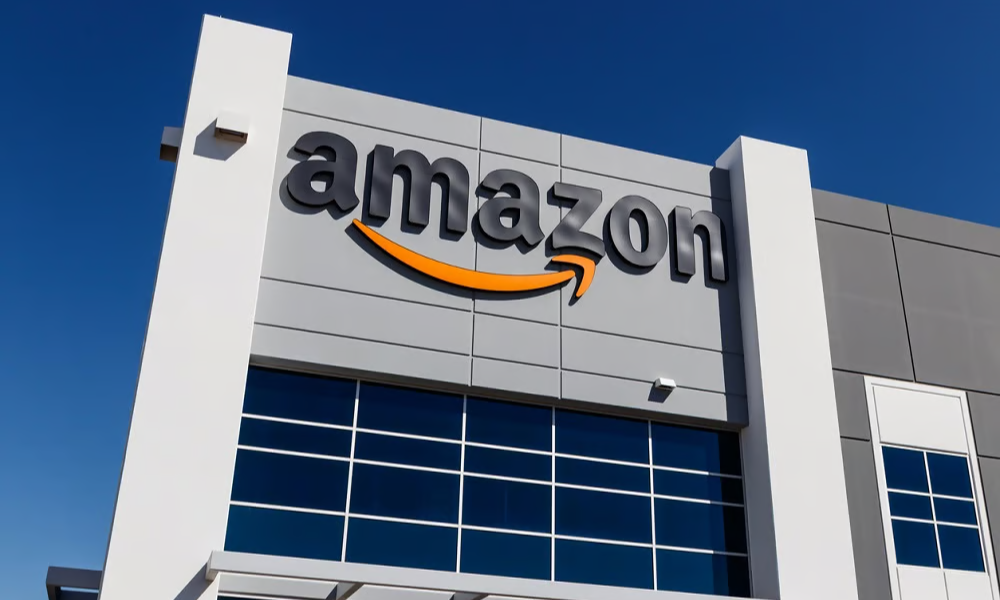Employees allege roadblocks in reporting injuries and overly demanding expectations

As Amazon’s Prime Day on July 16 approaches, Amazon workers in Quebec are voicing serious concerns about workplace safety and the handling of injury claims. Despite Amazon's assurances of prioritizing safety, workers' testimonies and experiences tell a different story, highlighting systemic issues in making workplace injury claims with Quebec’s workplace health and safety regulator, CNESST.
Amazon employees in Quebec report significant hurdles when trying to file injury claims. Many workers describe a culture that discourages immediate reporting of injuries, leading to delays that complicate their ability to receive compensation and medical support from CNESST.
The Union of Sick and Injured Workers in Quebec, known in French as Union des travailleuses et travailleurs accidentés ou maladies, or UTTAM, provided a document to Canadian Occupational Safety containing testimonials from Amazon workers.
One worker, Orlando from fulfillment center YUL2, shared his frustration: "Working at Amazon is very hard physically and mentally. You are pushed to work faster, and when you get injured, you are told to just take a break. There is no proper documentation, which makes it almost impossible to file a claim later on".
Gabriel, another Amazon employee, recounted similar experiences: "When I got injured, they didn't believe it happened at work. They sent me to AmCare, but without proper proof, CNESST rejected my claim. It's a constant struggle to get any recognition for our injuries." AmCare is Amazon’s internal onsite medical clinic that fulfillment workers are instructed to visit if they are sick or injured on the job.
Injury reporting discrepancies
The CNESST (Commission des normes, de l'équité, de la santé et de la sécurité du travail) is responsible for handling workplace injury claims in Quebec. However, workers report the process is fraught with difficulties. Virginie Robert, spokesperson for UTTAM says delays in reporting due to Amazon’s internal practices lead to claim rejections, and even when claims are accepted, Amazon often challenges them at The Administrative Labour Court, the province’s labour law tribunal.
"What we see is that Amazon systematically challenges claims accepted by CNESST,” explains Robert. “This is a deliberate strategy to wear down the workers and delay their access to benefits and support.”
Amazon has firmly denied these allegations. Barbara M. Agrait, an Amazon spokesperson, says, "there’s no truth to the allegation that we discourage employees from reporting injuries or seeking treatment. On the contrary, we encourage employees to report potential injuries early and often, at the first sign of discomfort. Many of our sites are staffed with onsite medical representatives and first aid clinics, and we encourage employees to use these resources if they need them. But our wellness clinics are for first aid, and first aid only. If employees need care beyond first aid, we urge them to seek care from an outside medical professional."
Concerns ahead of Prime Day
With Prime Day fast approaching, the pressure on Amazon workers intensifies. Employees report that the already demanding workloads are ramped up significantly during this period, with mandatory overtime and heightened performance expectations. UTTAM says these conditions raise the risk of injuries and further strain the already stressed workforce.
One worker from YUL5 expressed their anxiety saying, "during Prime Day, we are expected to work longer hours with increased intensity. The stress is immense, and the physical toll is unbearable. Last year, I was packaging almost double the usual amount of boxes, which led to severe back pain"
Regarding the high demands and the impact on worker health, Agrait says the company is continually trying to improve on health and safety.
"Our safety performance has continued to improve, and we’re proud of our progress which includes a 30% reduction in recordable incidents across our worldwide network since 2019. But we’re not satisfied and we’re always working to be best in class, allocating more than $750 million this year alone to additional safety enhancements, programs, and technologies."
The testimonies from Amazon workers in Quebec reveal a troubling disconnect between the company's stated commitment to safety and the reality on the ground. The alleged challenges in making injury claims with CNESST and the added pressures of Prime Day highlight the need for better transparency, support, and genuine safety measures to protect workers.





